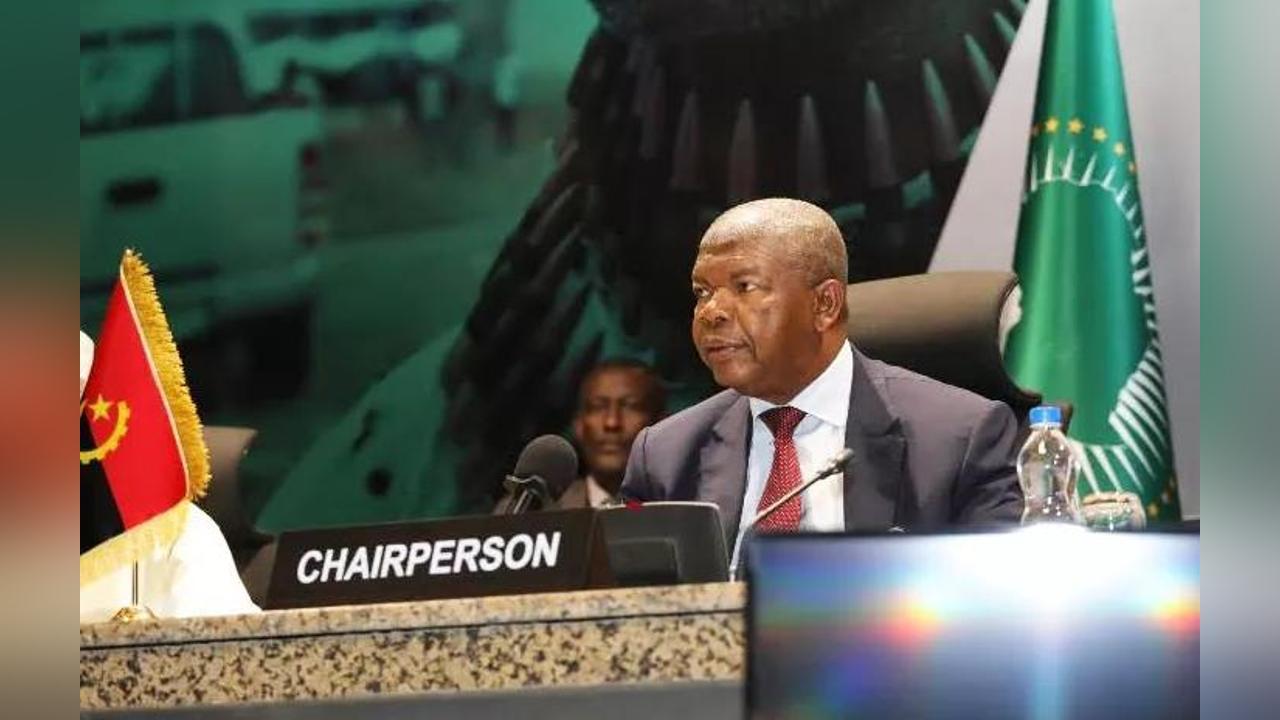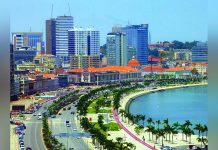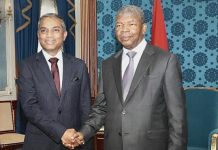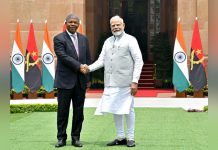Africa-Press – Angola. President João Lourenço celebrates, this Tuesday, his second anniversary as Champion for Peace and Reconciliation in Africa, a mandate in which he has put his diplomacy at the service of pacification and stabilization of the continent.
In fact, it was at the 16th extraordinary summit of the African Union (AU), also known as the Malabo Summit of May 28, 2022, that the President of the Republic was designated Champion of the African Union for Peace and Reconciliation in Africa (CAMPPÁFRICA).
Two years later, President João Lourenço has revealed himself to be a “tireless worker” in his thorny mission of permanently searching for solutions to the various conflicts, political and armed, that afflict the continent.
Likewise, and as acting president of the International Conference on the Great Lakes Region (CIRGL), João Lourenço was mandated, also by the AU, to ensure mediation in the crisis between the Democratic Republic of Congo (DRC) and the Rwanda.
Since then, the Angolan capital has become the scene of constant diplomatic movements, with the entry and exit of foreign delegations at various levels, as if an unavoidable passage along the paths of the “African Pax”.
In other words, Angola became “a turning point for political consultations” on the African continent, according to observers attentive to the development of African diplomacy.
The Angolan statesman’s commitment goes towards achieving and preserving peace, national reconciliation, democracy and respect for human rights, on the continent that is the cradle of humanity.
In carrying out these responsibilities, it has permanently encouraged dialogue and promoted political consultations as a way to strengthen trust and build understanding between the opposing parties.
Africa is following with concern the eternal outbreak of hotbeds of tension and intense conflicts, with the return to war in Sudan and coups d’état in West and Central Africa as the most recent manifestations.
Heavy losses of human life and the disruption of the social, moral and material structure of societies have been the common denominator in these conflicts, followed by the instability of neighboring countries and, therefore, the continent in general.
Background
Before the Summit in Malabo, capital of Equatorial Guinea, took place in May 2022, João Lourenço’s political-diplomatic agenda was already dominated by multiple initiatives in favor of peace, stability and security in the regions in which Angola is located.
In this context, and taking into account the worsening of the situation in Mozambique, the Angolan statesman proposed to the 33rd ordinary session of the Conference of Heads of State and Government of the AU, from 9 to 10 February 2020, in Addis Ababa, the holding an extraordinary summit on security issues in Africa.
The objective was to comprehensively address the problem of terrorism and violent extremism and the issue of unconstitutional changes of governments, three situations that continue to negatively impact the continent, delaying the realization of the “Africa we want”.
The Angolan proposal would be approved at the 35th ordinary session of the AU Conference of Heads of State and Government, from 5 to 6 February 2022, also in Addis Ababa, the Ethiopian capital and headquarters of the African Union.
The meeting then decided to call the aforementioned summit for May 28 of the same year, in Malabo, after repeated warnings from President João Lourenço about the high level of danger of the resurgence of unconstitutional changes of power in Africa.
In his view, this phenomenon led to greater political instability and the weakening of democratic legitimacy and the rule of law in the affected countries.
João Lourenço has always condemned and maintained his firm stance against attempts to establish autocratic regimes and unconstitutional changes of governments on the continent, as he understands that they constitute a serious threat to peace, stability, security, development and the protection of rights humans.
Before that, the Angolan Head of State embraced the challenge of normalizing relations between Rwanda and neighboring Uganda, which had been deeply deteriorated until causing the closure of the common border, through the Gatuna/Katuna post, in 2019.
A process of negotiations then began under Angolan mediation assisted by the DRC, which led to the signing of the Luanda Memorandum of Understanding, on August 21, 2019.
The act of signing the document, which put an end to the dispute between the two countries, took place during a quadripartite summit, in which, in addition to Presidents Yoweri Museveni (Uganda) and Paul Kagame (Uganda), the Angolan Head of State and his DRC counterpart, Félix Tshisekedi.
The head of state of Congo-Brazzaville, Denis Sassou Nguesso, also attended the meeting as a guest.
The rapprochement of the two neighboring countries, since January 31, 2022, was symbolized by the reopening of the common border, at the Gatuna/Katuna post, based on the guiding principles of the Luanda Memorandum of Understanding and the decisions of the 4th quadripartite summit on February 20 2020.
For More News And Analysis About Angola Follow Africa-Press






